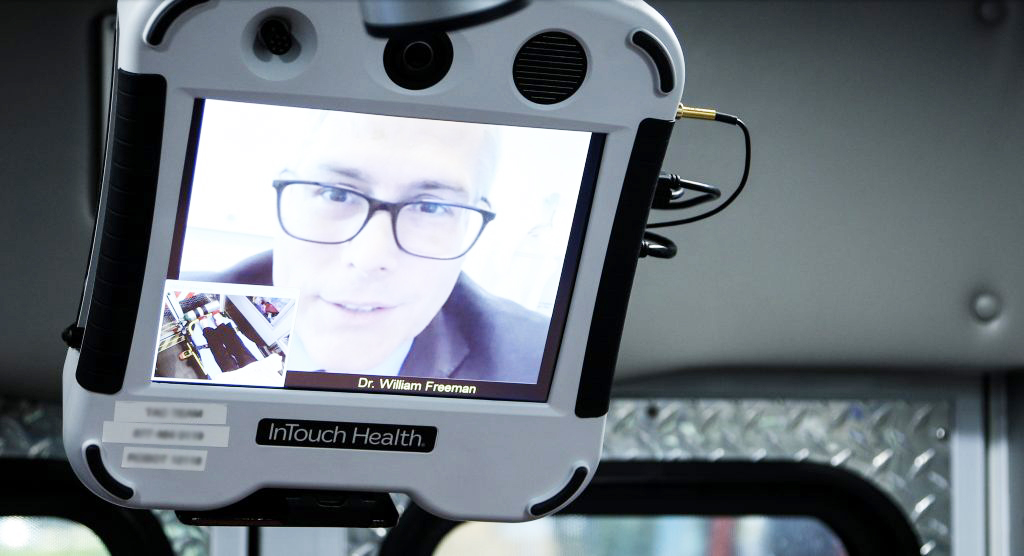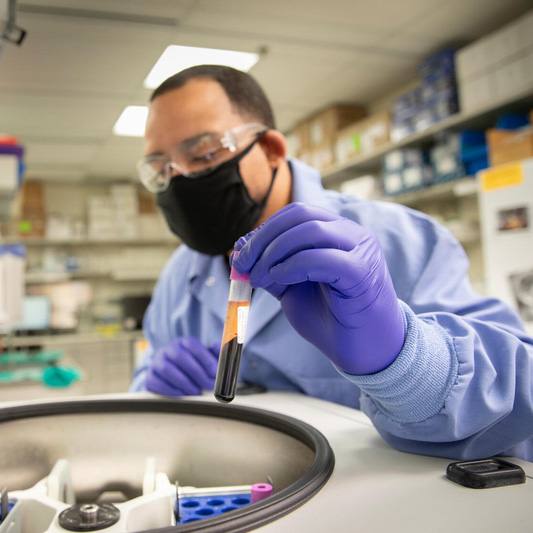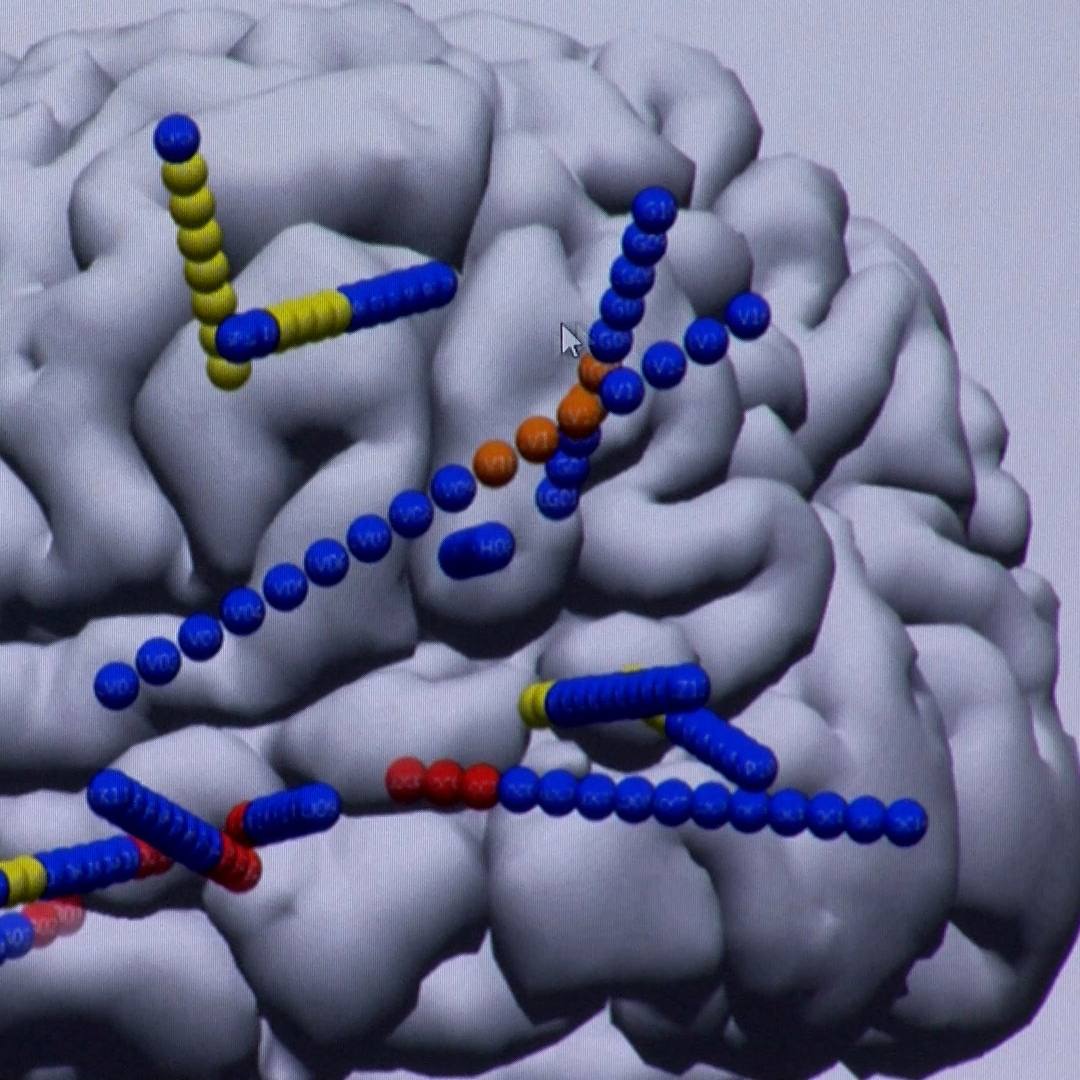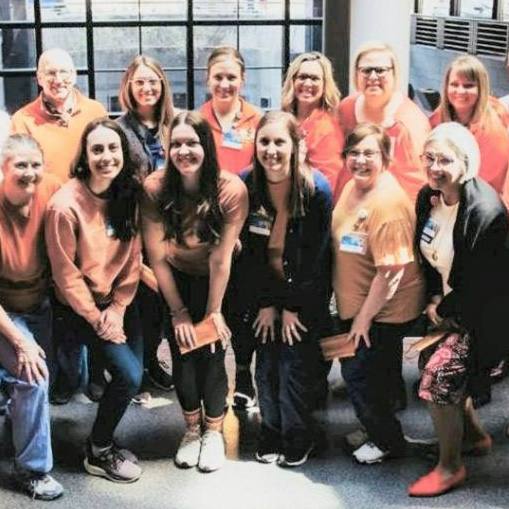-
Featured News
New mobile assessment saves brain cells during stroke
 JACKSONVILLE, Fla. — Every year, more than 795,000 people in the U.S. have a stroke, which remains the leading cause of serious long-term disability and costs the nation $34 billion annually, according to the Centers for Disease Control and Prevention.
JACKSONVILLE, Fla. — Every year, more than 795,000 people in the U.S. have a stroke, which remains the leading cause of serious long-term disability and costs the nation $34 billion annually, according to the Centers for Disease Control and Prevention.
“For every minute someone is suffering a stroke, 1.9 million neurons die. The faster we can restore blood flow the better the outcome for the individual,” says Dr. David Freeman, a neurologist at Mayo Clinic’s Florida campus.
Typically, stroke patients are assessed upon arrival at a hospital using the National Institutes of Health (NIH) Stroke Scale, which allows health care providers to gauge the severity of stroke and identify best treatment options.
Now, a new telemedicine initiative through Mayo Clinic’s Center for Connected Care gives physicians at Mayo’s Comprehensive Stroke Center the ability to conduct real-time assessments of stroke patients prior to their arrival at the hospital. Mayo experts say the assessment means faster access to crucial stroke treatment.
“Typically, when a suspected stroke patient is in an ambulance, being brought toward the hospital, there is downtime. Their vital signs are being monitored, but there’s not a lot of active medical care,” Dr. Freeman says. “Mayo Clinic recognized that there was an opportunity for improvement that could directly impact patient outcomes. We believed we could beam in robotically through telemedicine, examine the patient using the national standard of care metric, the NIH Stroke Scale, and use that time to help expedite treatment.”
Watch: Dr. Freeman discusses the new mobile assessment.
Journalists: Broadcast-quality sound bites and b-roll of the mobile assessment are in the downloads at the end of the post. Please ‘Courtesy: Mayo Clinic News Network.’
In a pilot study conducted in 2015, remote ambulance-based assessments reduced door-to-needle time – the time from when the patient is confirmed as having a stroke to obtaining treatment – by an average of 7.5 minutes.
“Those minutes are crucial for a patient’s recovery because one minute is equal to 1.9 million neurons,” Dr. Freeman explains. “We’re saving at least 15 million neurons, on average, by doing that examination in transit before the patient physically comes to the hospital. It’s exciting news for patients to know we’re working to get them better faster.”
Currently, two transport units from Century Ambulance Service in Jacksonville, Florida, are equipped to provide the mobile assessments, which work using a special tablet-type device, a secure video software application that complies with the Health Insurance Portability and Accountability Act (HIPAA) and a cellular connection.
“Our vision for Connected Care is to use technology to extend Mayo’s reach and deliver the highest-quality care to people at the time and place they need it most,” says Dr. Sarvam TerKonda, medical director for Mayo’s Connected Care in Florida. “Telestroke is recognized as a scientifically valid and accepted clinical practice endorsed by the American Heart Association. This new mobile, prehospital stroke assessment is an exciting example of innovation that is positively impacting local patients and improving their lives.”
Plans are already in place to expand the mobile assessment program over the coming months.
Media contact: Cynthia Weiss, Mayo Clinic Public Affairs, 904-953-0464, newsbureau@mayo.edu







